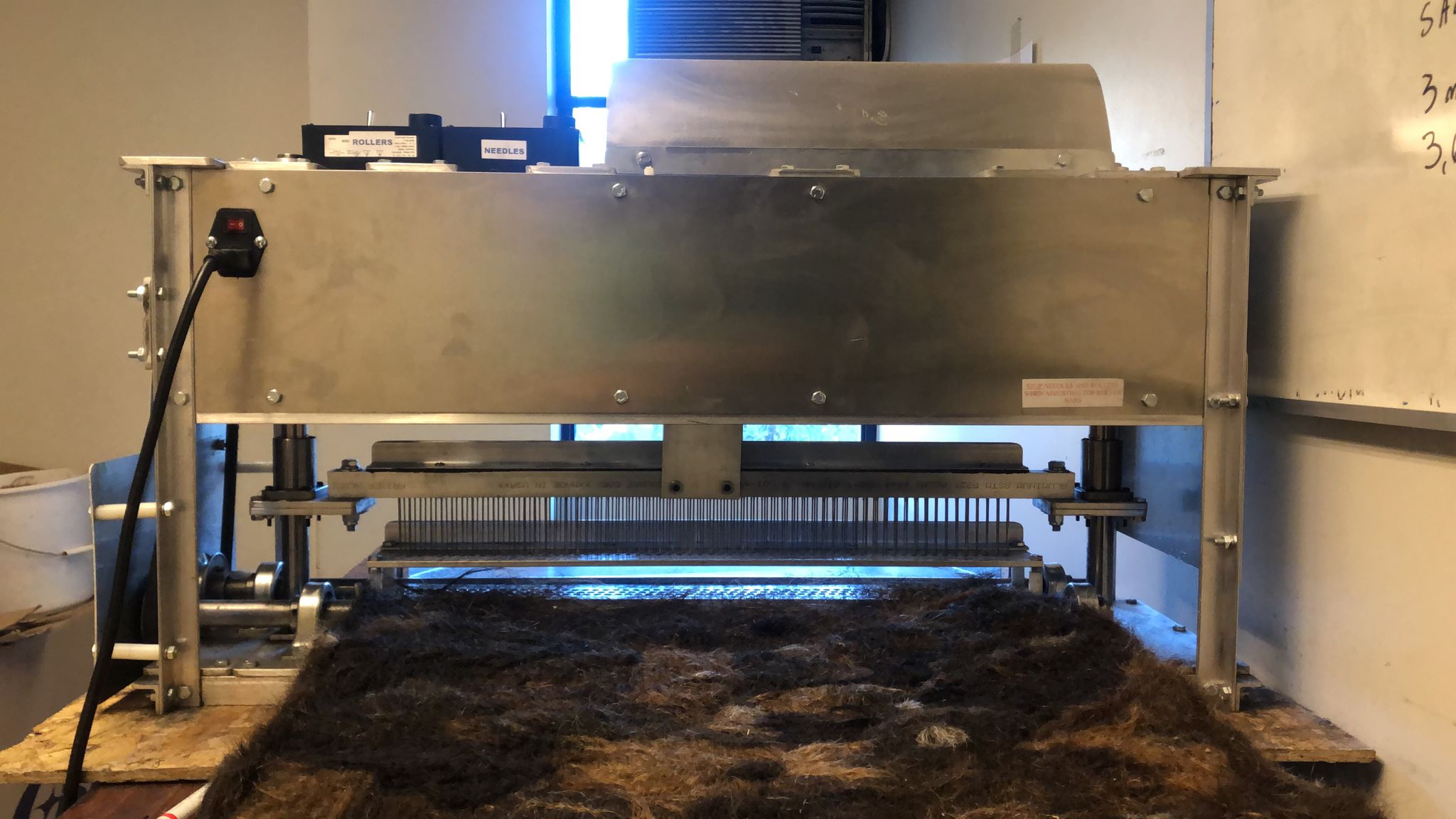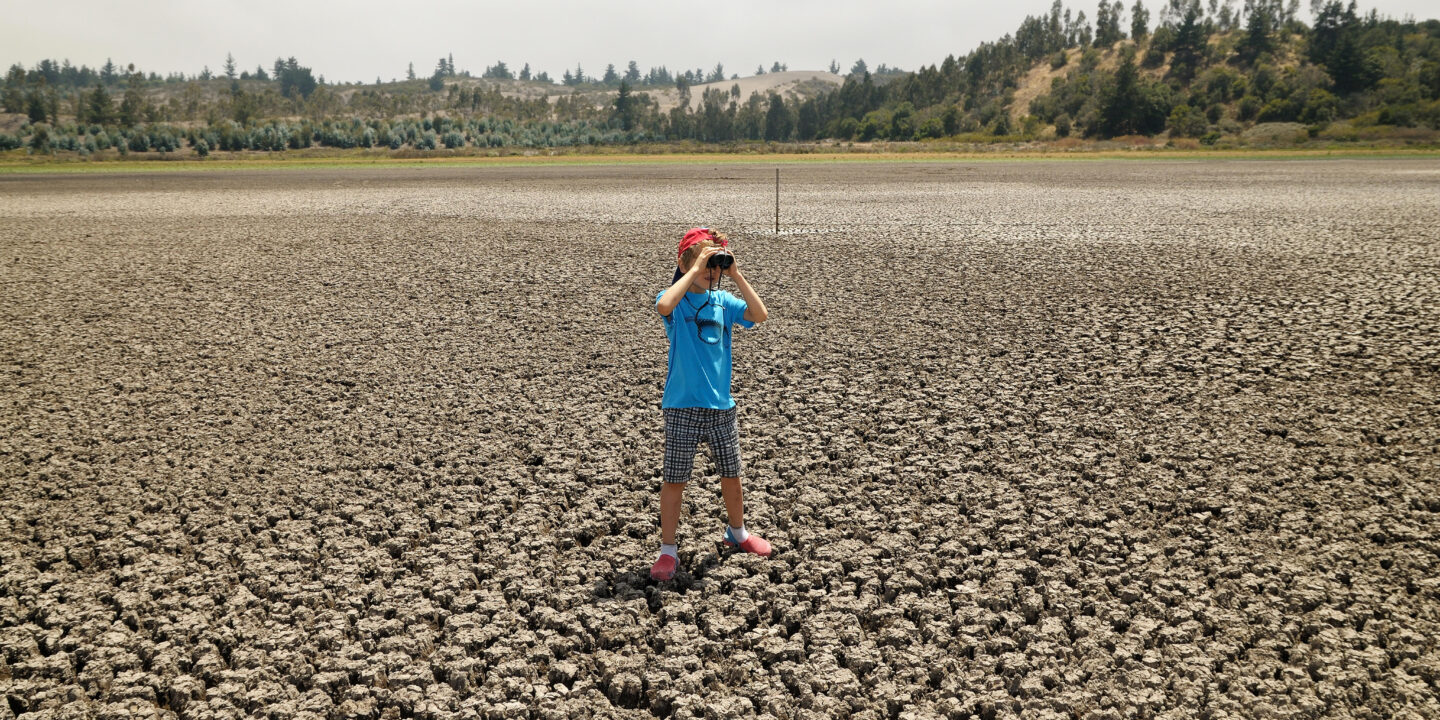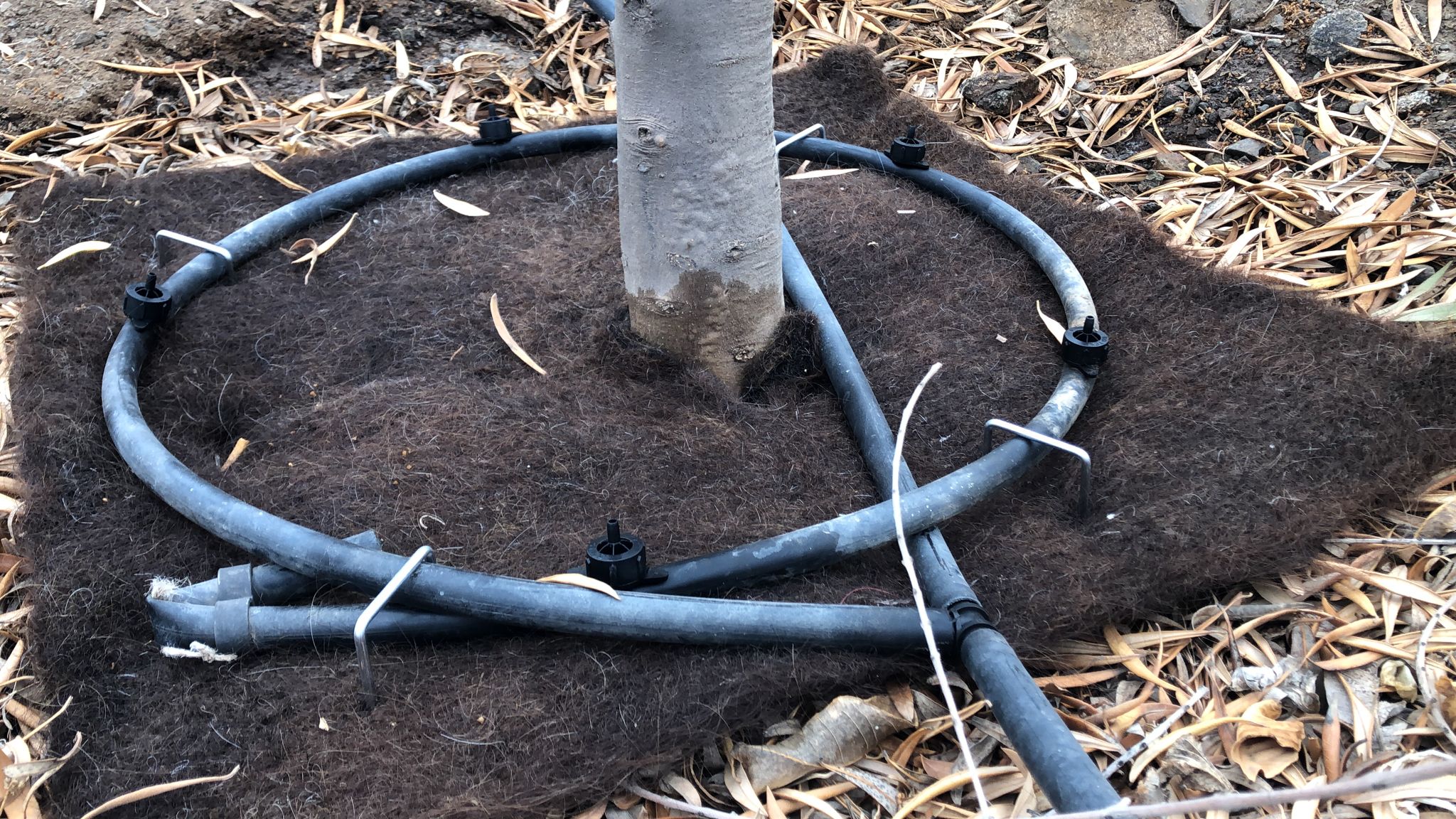In the rural Chilean countryside, winter has taken its toll on Roberta Mora’s modest farm. But this morning, she’s hopeful. She places a small mat of compacted human hair around the bases of her corn plants and takes comfort in the knowledge that the improbable instrument will protect her crops from the cold and save her from having to use unnecessary water.
Unbeknownst to Roberta, the benevolent spark making it possible for her to utilize these mats came from halfway around the world.
Crossing the globe to make a difference
Chile is a country on the frontlines of the global climate crisis—among the 10 most vulnerable in the world. And it’s this vulnerability that led Mattia Carenini to the country in 2020. Prior to traveling to the southern cone, Carenini had worked in Spain across various projects for European NGOs trying to offer solutions to the climate crisis and assist with the resulting social issues. After some research, he decided Chile would be a great place to pioneer new social innovation projects.
Chile caught Carenini’s attention after he learned that innovations in the Chilean sustainability sector remained sparse, while opportunities to improve the social and environmental problems in the developing Latin American country steadily increased.
Seeking ways to innovate around the reuse of waste products, Carenini tested several ideas, but found logistics in Chile to be challenging. “Despite having industrialization and a growing economy, [Chile] still has big social problems that make it difficult to obtain resources for different environmental initiatives such as recycling”, he said.
Though there has been a recent uptick of economic growth in Chile, people often work long hours for moderate-to-low income. This makes it difficult for most people to dedicate time or money to getting involved in innovations around climate and social issues.
But, after some additional research, Carenini came across an organization with the power to deliver instruments of change to the people.
Partnering for impact
Matter of Trust America is an environmental non-profit organization founded in 1998 by Lisa Craig and her husband Patrice Olivier. In 1990 it received the status of public charity, with a main objective of helping to clean contaminated water, reuse waste and pioneer recycling education.
Upon learning of the group, Carenini was impressed by the charity’s profile, but became most intrigued by their pioneering work with human hair, which they used to create felt products that dispose of petrochemicals in wells, oceans and rivers. Their main projects revolved around the use of hair mats to tackle oil spills.
After a professional introduction, Matter of Trust brought Carenini on as Head of Operations and Innovation. Together with Alberto Infante, he co-founded Matter of Trust Chile. After receiving a felting machine, the duo started a door-to-door mission aimed at collecting human hair. The first great ally was the mayor’s office of Providencia, a borough of Santiago, which gave them an office and logistical support for their ingenuitive—though at the time, still unusual—collection activity.

“The world of human hair recycling was a success in Chile,” said Carenini. “There was a lot of hype in the media about what we were doing, and this helped us attract a network of hairdressers who donated us hair in bigger quantities. We had to physically collect from some weekly, while other salons in the regions would ship their leftover hair to us in Santiago.”
Co-founder, Infante, said: “The collection of hair appealed to many small hairdressers who were looking to make a difference, and Matter of Trust Chile helped to make their own contribution measurable by offering a traceability of the hair they donated…Customers got to know their hair was used for environmental causes and gave them a sense they were contributing to something that helped everyone”.
Originally, production of the hair mats was intended to continue addressing the problem of oil spills. But, in recent years, oil pollution has become less of a widespread issue. Because of this, Carenini and Infante soon turned their attention to a more prevalent problem that has been dominating the local news agenda in Chile.
A ‘mega-drought’
Over the past decade, Chile has faced a devastating water drought, with annual rainfall deficits ranging between 30-70% when modeled against the last 1,000 years. If current conditions continue, the country is projected to be one of the 30 most water-stressed in the world by 2040.
Currently, 263 Chilean counties are under agricultural emergency due to water shortages. In response to the drought, the Chilean government recently announced potential water rationing measures for inhabitants of the areas most affected—mainly the dry central and northern regions.

Global warming and ineffective environmental policies are believed to be the major causes of the drought, though large industrial plants are also to blame due to their high demand for water. Still, it is Chile’s small and medium-scale farmers that suffer most day-to-day as they struggle to produce crops and livestock. In poorer parts of the country, these farmers rely on their own crops to feed themselves, so the lack of adequate water also curtails their access to healthy food.
The economic impacts of the drought have also affected poor and working class people most. From increased unemployment, to diminishing salaries for agriculture workers, and a rising cost of food, the future looks bleak if change doesn’t come soon.
Agro-hair: A new iteration of direct solution
Despite this inauspicious scenario, there are potential solutions. One, proposed by the study Megasequía: Diagnosis, impacts and proposals, suggests that Chileans can adapt to the water crisis if they “adjust [their] water use to a sustainable level, according to [the] water reality”.
In an effort to implement this suggestion, Matter of Trust Chile pivoted its operations to focus on providing farmers with a practical solution based on their previous work with recycled human hair. In addition to combatting the effects of oil spills, their agro-hair products can also be used to directly benefit the growth of plants and trees.
Installing hair mats in crops halves the amount of irrigation water needed for yield and the nutrients in the compacted hair provide nitrogen to the soil, which acts as a great fertilizer. The mats also protect plant roots from the cold, allowing them to grow safely and uninterrupted.

In order to produce an ideal agro-hair mat that could meet the needs of many different Chilean farmers, Matter of Trust Chile consulted local communities and carried out extensive tests before producing an effective prototype. Once they began distributing the mats, it didn’t take long for word to spread about the new water-saving agricultural tool.
Today, many Chilean farmers are seeking out Matter of Trust Chile’s agro-hair mats to protect their crops and enhance their yields. Anecdotally, the mats have even been used to help reduce the amount of nocturnal animals that rummage through (and potentially eat or damage) emerging crops.
The future of Matter of Trust Chile
Despite the exorbitant efforts of the team in Chile, production of the argo-hair mats remains challenging—and expensive. One of Matter of Trust Chile’s current goals is to increase funding across a variety of sources, which will allow them to produce more, meet consumer demands and amplify their environmental and social impact.
Critically, the mats have already been proven to reduce water use on a regional level, and their widespread implementation may indeed help Chile combat the seemingly never ending drought. And while the recognition and large-scale impact are great, for Carenini, it’s stories like Roberta’s that drive his efforts to expand Matter of Trust Chile’s work.

“We need to grow in order to meet our goals as an organization, but also to help solve this terrible problem that small farmers are experiencing in the country,” said Carenini. “They are running out of work and without a way to work their land”.
Learn more about the project and how you can get involved here.









